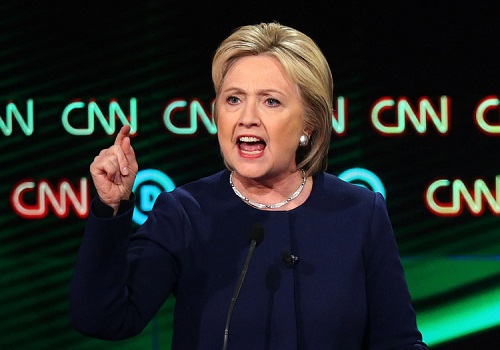What does another Clinton presidency mean for your retirement planning?
Super Tuesday primaries left Hillary Clinton with a clear path to the Democratic nomination. The Senator has 677 pledged delegates against just 478 for Sanders and she’s sure to win most of the 712 party officials and leaders that control the super-delegate count.
The Republican nominee is not quite as certain with both Trump and Cruz running a close match. Trump holds 390 delegates of the 1,237 needed for nomination, a fairly good margin above Cruz (303 delegates) and more than double Rubio’s delegate count.
If Clinton were to face Trump in November, Rasmussen Reports puts her up by 5% against the GOP contender while a CNN poll puts her higher by 8%. The same CNN poll puts Clinton behind Cruz by a slim 1% but well within the margin of error.
A lot can happen between now and November but another Clinton presidency is looking like a strong possibility.
What would a Clinton presidency mean for your retirement and investments?
4 Retirement Changes to Make before a Clinton White House
I’m not saying that a Clinton presidency is assured. I can only hope that even if she is elected, common sense prevails and she doesn’t dig too deeply into retirees’ pockets. If she is elected, there are a few retirement changes that could be coming. Understanding what to do and getting ready for them could help avoid the brunt of the pain.

Roth IRA Conversions
President Obama tried to kill Roth IRA conversions twice in his annual budget proposals and the retirement tool will almost definitely come under fire again under a Clinton presidency. Couples making over $194,000 are shut out of regular Roth contributions but Congress eliminated the income cap on conversions in 2010. Conversions are a great way to diversify your tax burden in retirement but may not be available for long.
Even if it means slightly more taxes this year or next, you may want to consider converting a chunk of your other retirement savings into a Roth IRA account. If Clinton slams the door on conversions, you could be left paying much more in taxes after retirement than the cost to make the conversion now.
An End to the U.S. Energy Revolution
Clinton deepened her stance against hydraulic fracturing this week at a Democratic debate in Michigan, saying she would move to heavily regulate the practice in energy production. Clinton added that, “By the time we get through all of my conditions, I do not think there will be many places in America where fracking will continue to take place.”
A Clinton presidency would destroy the energy revolution in America, leaving us back where we started ten years ago buying are oil from OPEC and Middle Eastern sponsors of terror. The move could have far-reaching consequences from plunging stocks of energy companies to a weaker economy and U.S. dollar.
Besides ending the debate of whether energy stocks can still be good retirement investments, the effect on the economy and the greenback would likely mean that gold and other real assets would be the only investments to avoid a crash. Most industrial companies would buckle under surging energy costs and U.S. manufacturing would once again lose out against foreign rivals.
Bigger Government in Healthcare
Clinton has been fairly noncommittal so far on what she would do with Social Security. Most of her comments are populist sound bites promising to oppose all cuts, privatization or increases in the retirement age. Her website calls out to “asking” the wealthiest to contribute more and demanding lower prices for prescription drugs. Translated, this means higher payroll taxes and increased government involvement in healthcare.

The biggest change to retirement planning could come from one of Clinton’s economic advisors. Teresa Ghilarducci, a professor at The New School in New York, has pushed the idea of government-run retirement accounts for years. Ghilarducci estimates that the average worker needs to save up to 20% of their salary to prepare for retirement. Subtracting the 12.4% of income paid into Social Security leaves an additional 7.6% that would come out of a worker’s paycheck and go into the government-managed accounts.
Taking more out of people’s pay won’t go down easily so Ghilarducci proposes a $600 tax credit for those making under a certain amount. Another example of how Democrats are quick to fight against some tax breaks while piling on others. The plan would also force employers to split some of the extra savings, a tax that would equal roughly $200 billion on current employment.
Let’s forget the fact that the government has done a marvelous job of managing its other retirement savings program, Social Security, to the point of bankruptcy. Clinton would compound the issue with a new set of taxes to pay for a program that cuts deeper into worker’s pay. I agree that people need to save more for retirement but it’s hard to worry about the future when an economic collapse leaves you without a job today.
Besides the obvious effects on the economy and taxes, job security would tumble. Instead of holding the recommended three to six months’ worth of expenses in an emergency fund, you might consider adding a few months to the fund.
While another Clinton presidency isn’t certain, what is certain is that it will have far-reaching consequences for the economy and your retirement planning. Don’t wait until it’s too late to make your retirement changes. Call an IRA Transfer specialist at (800) 571-6341 to answer your questions.

